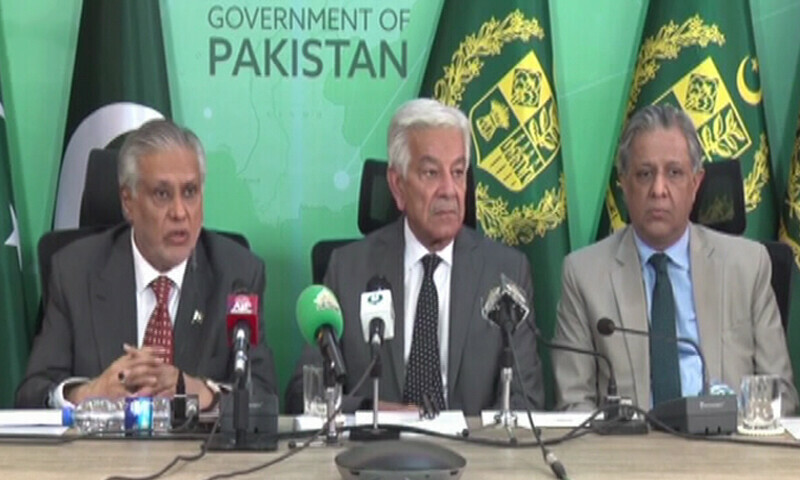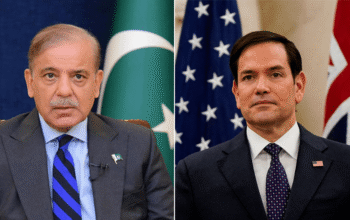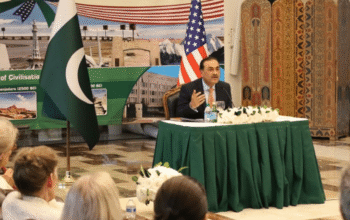By Staff Reporter
ISLAMABAD: Deputy Prime Minister Ishaq Dar on Thursday challenged India to provide evidence backing its claims of Pakistani involvement in a weekend attack in occupied Kashmir that killed 26 people, dismissing the allegations as “baseless” while warning of reciprocal measures against New Delhi’s diplomatic and economic escalations.
The remarks followed an emergency meeting of Pakistan’s National Security Committee (NSC), convened after India closed shared borders, downgraded diplomatic ties, and suspended cooperation under the Indus Waters Treaty (IWT) — a landmark 1960 water-sharing pact — citing unspecified “cross-border linkages” to the attack.
Gunmen targeted tourists in Pahalgam, a Himalayan resort town, on Saturday, killing 26 people, in the deadliest civilian attack in the region since 2000. A little-known group, referred to by Indian media as The Resistance Front, claimed responsibility. The Indian government indirectly accused Pakistan of involvement but has not publicly shared evidence.
“India has time and again played the blame game, and if there is proof of Pakistan’s involvement [in Pahalgam], please share it with us and the world,” Dar said at a press conference flanked by Defence Minister Khawaja Asif and other senior officials.
The deputy PM said Pakistan has taken note of foreign nationals arriving in Srinagar, some of whom are being monitored by intelligence agencies.
“We know that Indian intelligence is supporting them, and the foreigners are trying to export IEDs (improvised explosive devices). You can imagine where they are trying to export them.”
Dar warned that Pakistan’s armed forces are prepared to respond to any challenge.
“We are prepared in regard to defence. If anyone tries to attempt any adventure, then they’ve tried in the past as well [and failed] so this time around it will be even worse for them.”
He called India’s suspension of the IWT “legally void,” citing the treaty’s requirement for mutual consent to amend terms.
Dar confirmed Pakistan had summoned India’s senior diplomat in Islamabad to protest its actions, noting New Delhi’s demarche made no mention of the IWT.
Defence Minister Asif accused India of harboring leaders of banned militant groups, including the Tehreek-i-Taliban Pakistan (TTP) and Balochistan Liberation Army (BLA), alleging they receive medical treatment and logistical support on Indian soil. “This is not speculation — these are verified facts,” he said.
Asif further claimed India was “exporting terrorism” to Pakistan through Afghanistan and Balochistan, while referencing recent allegations by Canada and the U.S. of Indian involvement in extraterritorial operations. “Thankfully, no such accusations hang over Pakistan,” he added.
Both ministers warned of severe retaliation if India formally blamed Pakistan for the Pahalgam attack or took military action. “Any harm to a single Pakistani citizen will be met with force,” Asif said.
Attorney General Mansoor Awan said India’s suspension of the treaty had “no legal standing” and vowed Islamabad would pursue remedies through international forums.
“If the treaty is to be ended, then it would end by an agreement between the two countries,” the AGP said. “As far as the [Indian] statement is concerned, which is only a statement for now, if this escalates, then Pakistan, according to the treaty, has all legal rights.”
The escalation marks a nadir in relations between the nuclear-armed rivals, who have fought three wars since 1947, two over Kashmir. The dispute over the region — claimed in full by both but ruled in part — has long stoked regional instability.
Copyright © 2021 Independent Pakistan | All rights reserved




